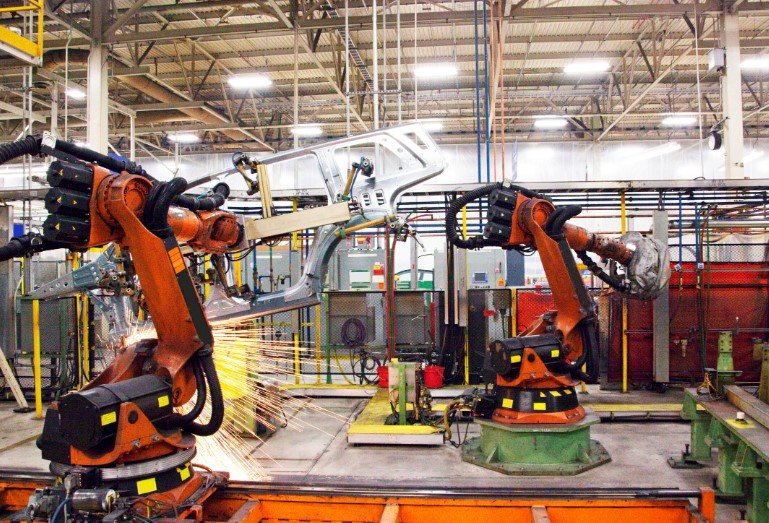British business leaders warn Prime Minister Keir Starmer that his upcoming industrial plan risks falling flat unless it offers real relief from the UK’s sky-high power bills hitting manufacturers hard.
The clock is ticking for Starmer’s government as it prepares to unveil a new industrial strategy this month. But behind the scenes, voices from industry are growing louder, demanding urgent action to confront one of the country’s biggest obstacles: energy costs that are sending shockwaves through the manufacturing sector.
Energy Bills: A Ticking Time Bomb for UK Industry
It’s no secret that energy prices have been a huge thorn in the side of UK businesses. Manufacturers say the country’s power bills are 46% above the global average. Ouch. That’s a massive disadvantage when firms are competing on a world stage.
Just imagine trying to run a factory when your energy costs are literally four times higher than those in the United States. The numbers don’t lie—this isn’t just a minor irritation; it’s a full-blown crisis. For sectors like chemicals, aerospace, and car manufacturing, the pinch is especially severe.
Industry leaders argue that this problem isn’t just about the biggest players. While steel and ceramics often get the spotlight for energy-intensive relief, the truth is broader. A wide range of businesses, big and small, are sweating over sky-high bills that eat into their bottom line.
“Unless the industrial strategy delivers a solution to the UK’s high energy costs for industry, it will have failed,” said Rain Newton-Smith, director-general of the CBI, the influential employers’ federation.
That’s a pretty stark warning from one of the country’s top business voices.

Government’s “Supercharger” Plan: Too Little, Too Narrow?
The government is aware the energy problem is massive and it’s trying to do something about it. The “British Industry Supercharger” scheme, launched by Rishi Sunak’s government in April 2024, was meant to ease the burden for 370 of the UK’s most energy-hungry companies.
But some critics think it’s not enough. They worry that focusing relief on just the heaviest energy users ignores the wider ecosystem of companies struggling to keep the lights on. The UK’s manufacturing base is diverse, and when energy bills spike, the impact ripples out far beyond just the obvious players.
Officials hint that the Supercharger scheme might get beefed up under Starmer, but the question is: will that be enough to stop businesses from bleeding money? Or will it be like putting a band-aid on a gaping wound?
High Energy Costs: More Than Just Numbers
Let’s get real. This isn’t just about figures on a spreadsheet. When energy costs rise sharply, jobs are at risk. Production can stall. Companies may have to rethink expansion plans—or worse, move operations abroad.
The pressure on manufacturers is relentless. With global competitors enjoying cheaper power, UK firms feel the squeeze.
Make UK, a key manufacturing lobby group, put it bluntly: “Industrial energy costs in Britain are four times as high as those in the US.”
That kind of imbalance makes competing nearly impossible for many. It’s like running a marathon while carrying a heavy backpack when your rivals run light.
What Businesses Want: A Broader, More Inclusive Strategy
Industry voices want more than crumbs. They want a comprehensive plan that spreads relief across a wide range of sectors—not just the energy giants.
Some companies are struggling quietly, but they’re crucial to the supply chain and economy. Supporting them matters.
Here’s what businesses say the government should consider:
-
Broadening energy subsidies beyond heavy industry.
-
Investing in green technologies to lower long-term costs.
-
Offering flexible billing or price caps to help with budgeting.
-
Encouraging innovation in energy efficiency across sectors.
A table below illustrates the difference in industrial energy costs per country:
| Country | Industrial Energy Cost (USD per MWh) | Comparison to UK |
|---|---|---|
| United States | 30 | 1/4th |
| Germany | 50 | 2/3rds |
| UK | 120 | Baseline |
| China | 40 | 1/3rd |
(Source: Make UK & IEA data)
It’s clear that the UK’s energy bills are way out of sync with major competitors.
Starmer’s Challenge: Balancing Ambition with Action
Keir Starmer faces a tightrope walk. He wants to project an image of bold leadership, yet tackling energy costs means dealing with complex issues like energy markets, subsidies, and industrial lobbying.
Ministers acknowledge the challenge. But as of now, the key question remains: will the government’s industrial strategy rise to meet this urgent need?
The answer will shape the future of UK manufacturing. Because if energy bills stay sky-high, businesses will continue to struggle or simply look elsewhere.
Starmer’s strategy could either pave the way for a revitalized industrial base or condemn it to further decline.








